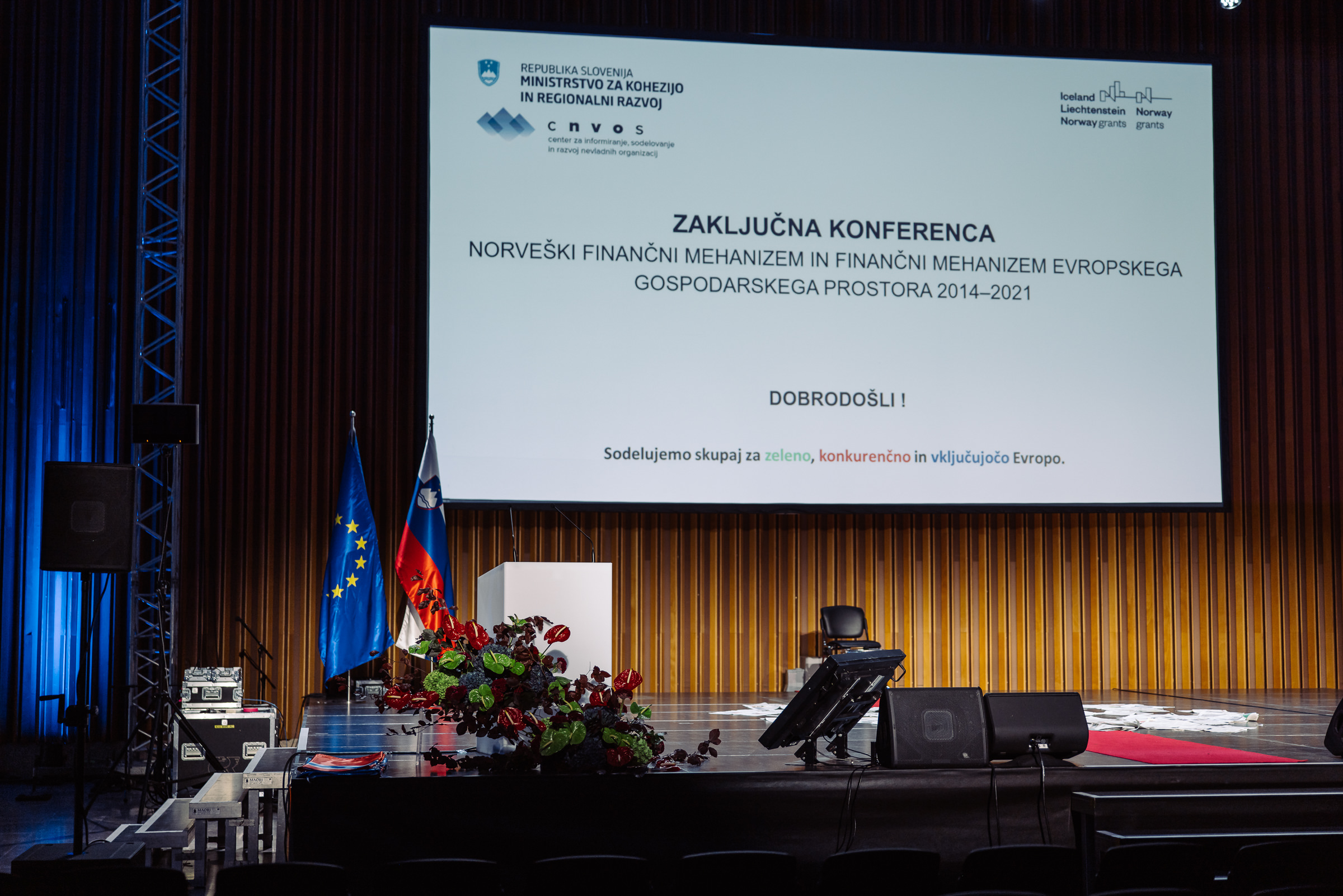
16 October 2024 – The closing conference of the EEA and Norway Grants 2014-2021 in Slovenia took place in Ljubljana, presenting a fragment of all the activities and projects that have been implemented during the period and have contributed to the key objectives of the Grants.
The key objectives of the Grants are to reduce economic and social disparities in the European Economic Area and to strengthen bilateral relations between Donor States – Norway, Iceland and Liechtenstein – and Beneficiary States, including Slovenia.
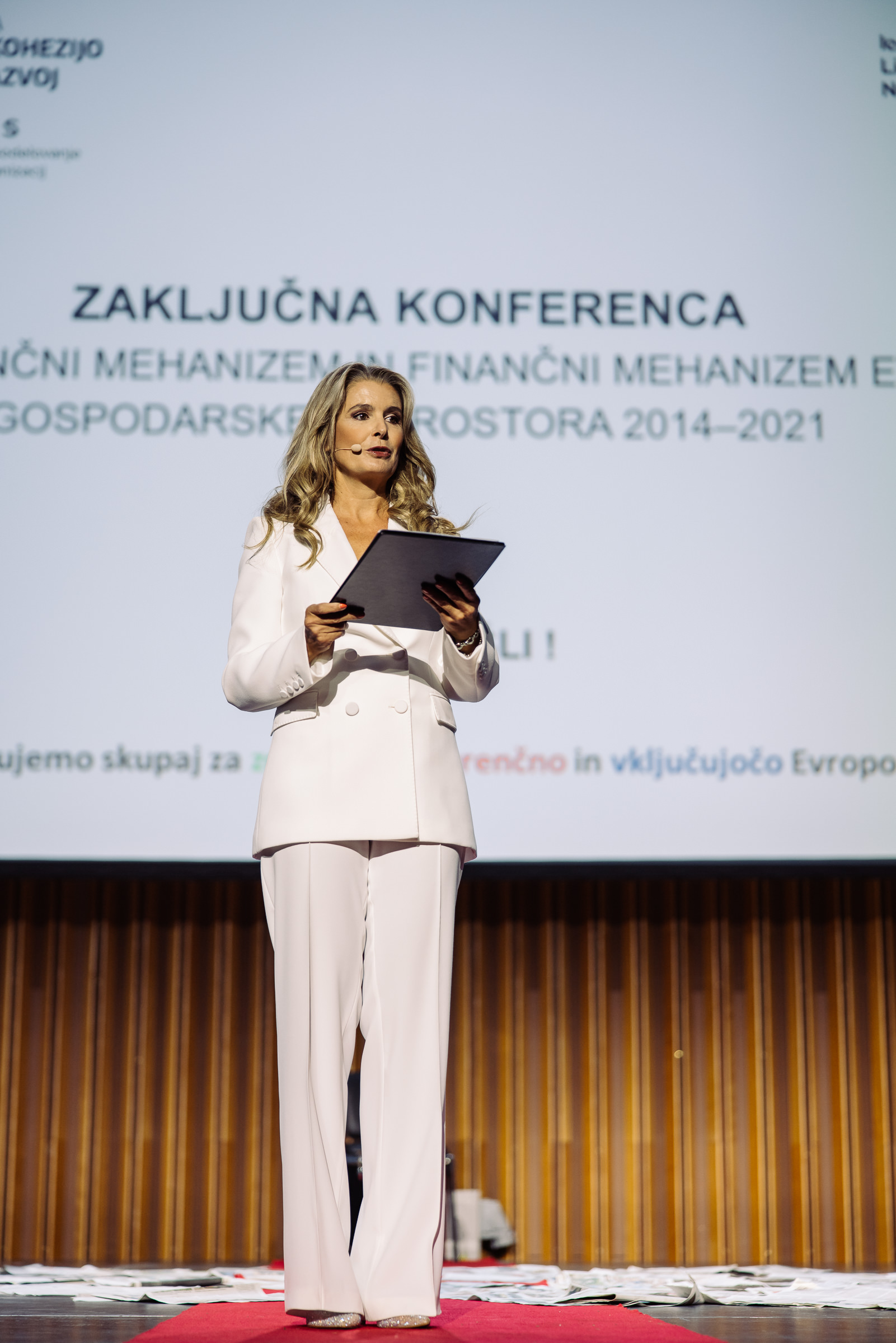
The Ministry of Cohesion and Regional Development acts as the managing authority for the EEA and Norway Grants 2014-2021 in Slovenia and is also the Programme Operator of three programmes, namely Education, Scholarships, Apprenticeship and Youth Entrepreneurship, Climate Change Mitigation and Adaptation, and the Fund for Bilateral Relations. The conference was also attended by the Centre for Information Service, Co-operation and Development of NGO (CNVOS) representatives, who, in consortium with the Legal and Information Centre Maribor (Institute PIP) and the Society for the Advancement of Voluntary Work Novo Mesto (DRPD Novo Mesto), manages the Active Citizens Fund.
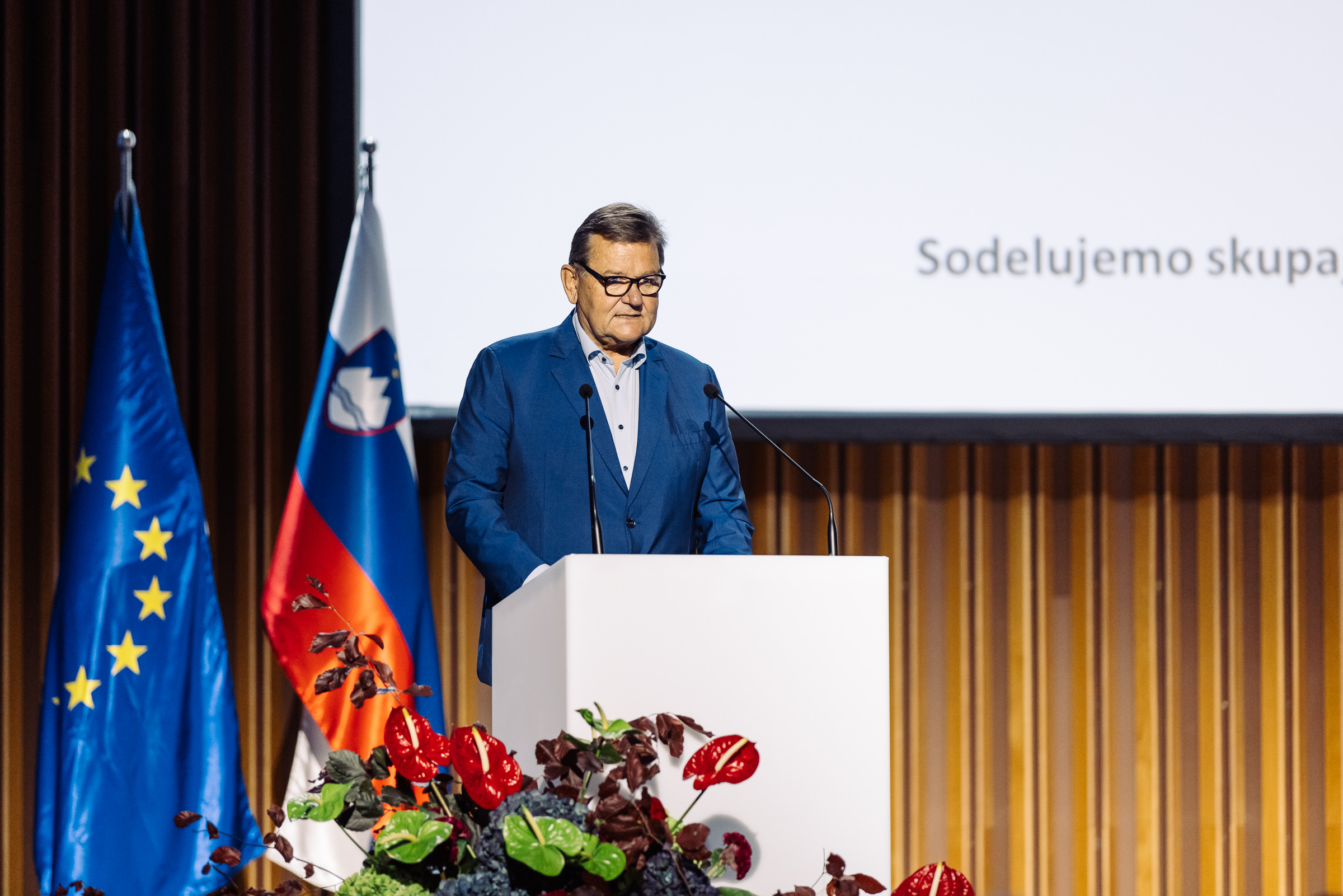
In his opening address, the Minister of Cohesion and Regional Development, Dr Aleksander Jevšek, stressed that the 20th anniversary of EU membership also marks the beginning of cooperation between our country and donor states in the framework of financial mechanisms. He added that “these are unique mechanisms, which are also the cornerstone of cooperation between Slovenia and donor states. The activities of both financial mechanisms follow the common objective of cooperation to reduce economic and social disparities in Europe. 41 projects have been implemented in all Slovenian regions under these programmes, involving 229 Slovenian and donor project partners. I am convinced that the results of the projects have contributed to the development and quality of life in different parts of Slovenia.”
The Minister thanked the donor states and their representatives for their continued support, as well as all the staff, project promoter and partners, numerous regional and local actors, institutions and NGOs for their initiatives and the successful implementation of the projects.
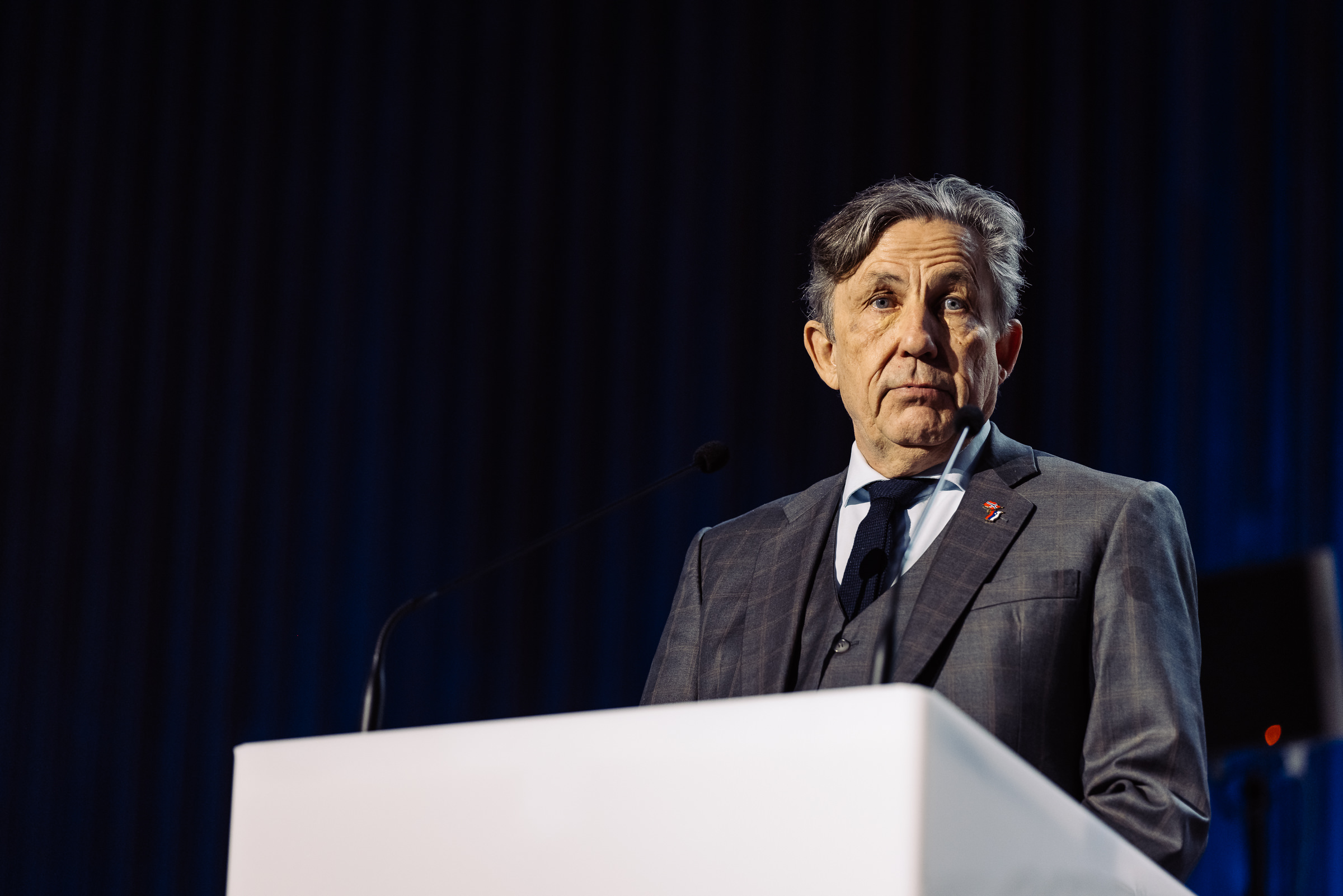
Herman Baskår, Deputy Ambassador at the Royal Norwegian Embassy in Budapest, responsible also for Slovenia, thanked the Ministry of Cohesion and Regional Development and other stakeholders involved in implementing the programmes for efficient work done. He stressed that Slovenia had ensured good cooperation between Slovenian and donor project partners.
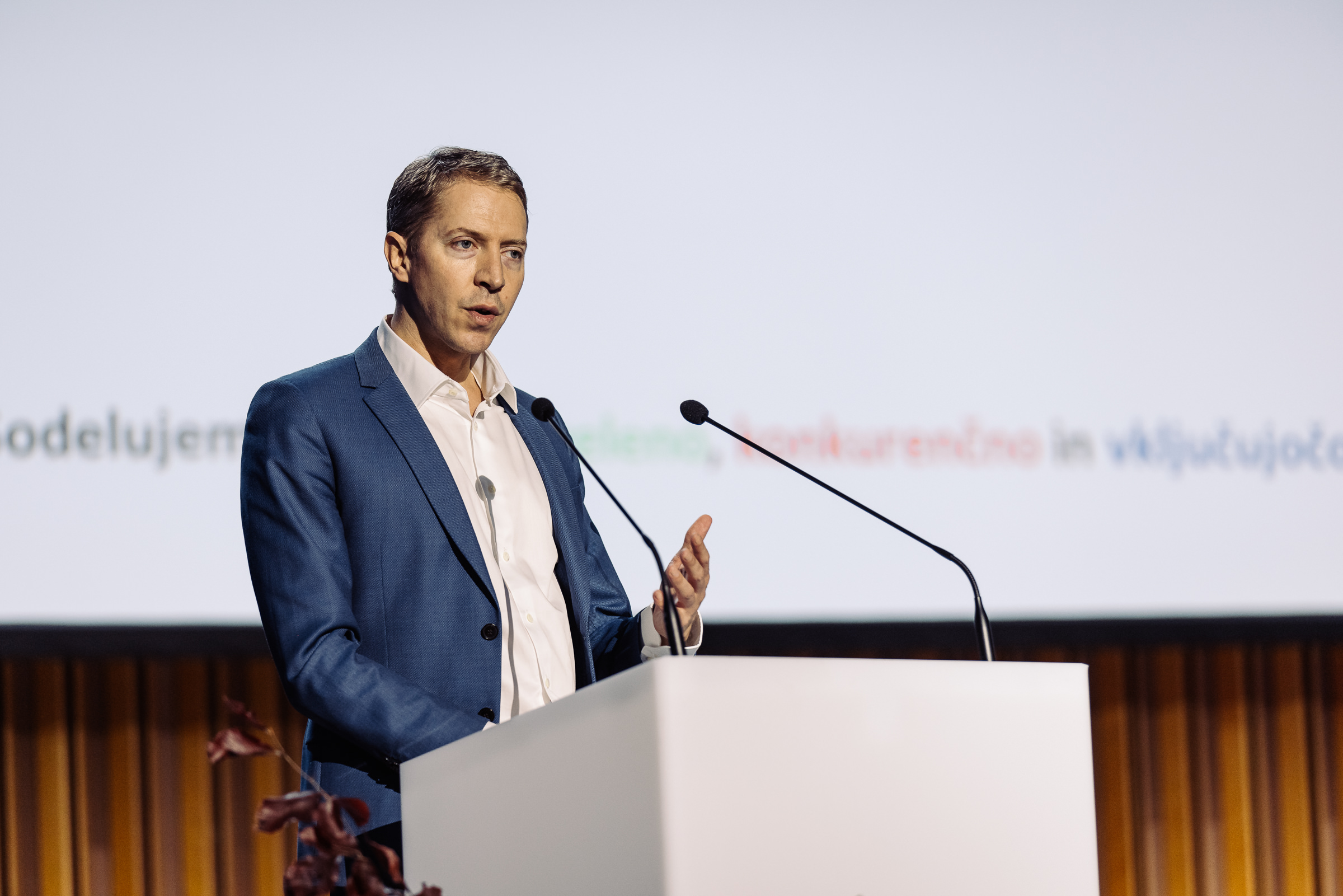
Aurélien Dierckens, representing the Financial Mechanisms Office (FMO) in Brussels, highlighted Slovenia’s success in implementing all its programmes and discussed the upcoming 2021-2028 programming period. He expressed his gratitude, stating, “Thank you to the National Focal Point and the national authorities for their efforts in organising this closing event. It provides an excellent opportunity for the FMO to connect with project promoters and review the outcomes.”
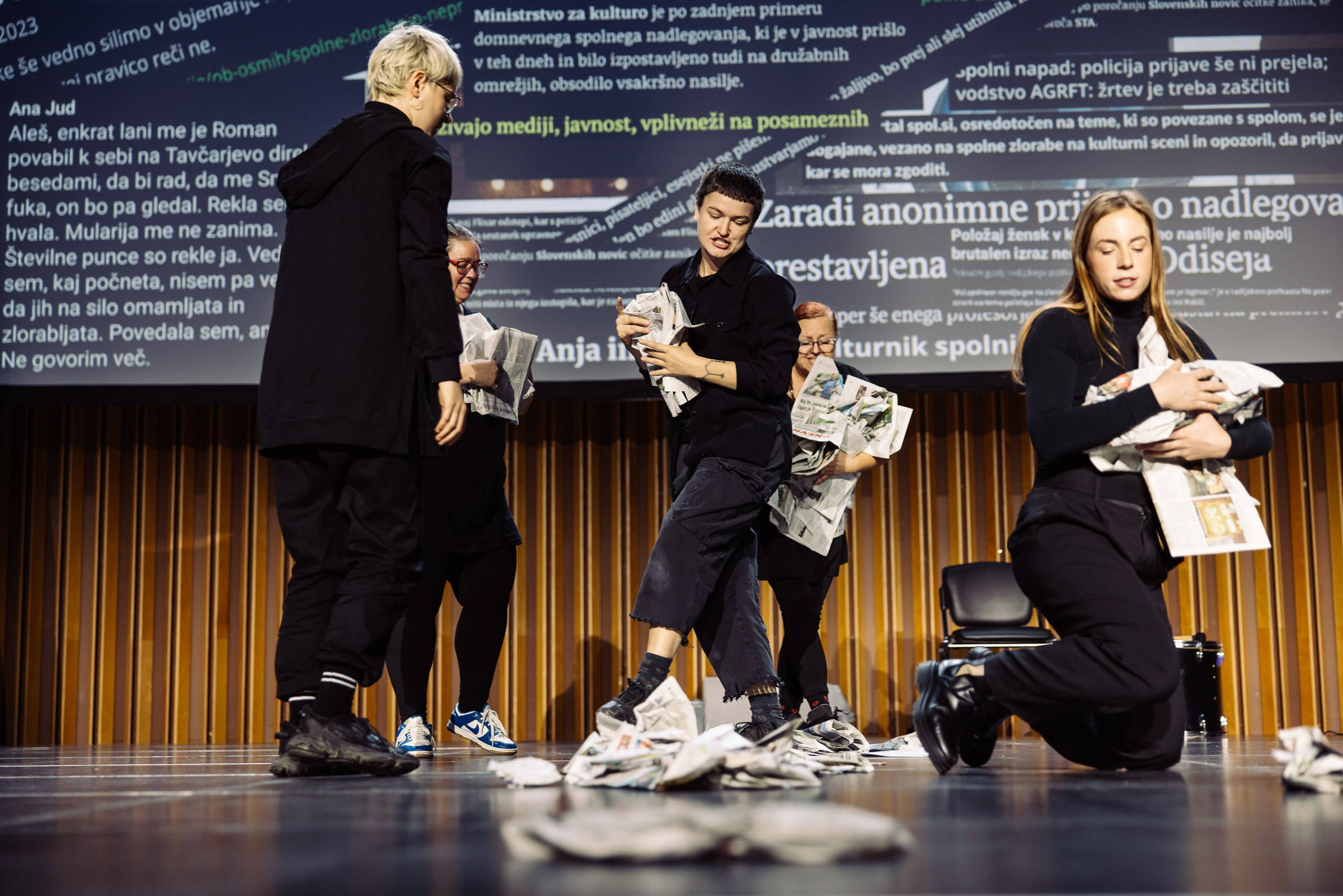
The conference was highlighted by a cultural presentation from KUD Transformator, which performed an excerpt from the play Every Other One Catches One. This play was produced as part of the project Gender Equality Rules: Creating an Equal Society for Everyone, co-financed by the Active Citizens Fund. Every Other One Catches One addresses the pressing issues of gender-based violence and inequality, both within the cultural sphere and beyond. Through personal narratives and striking visual representations, the creators expose deeply ingrained patterns of patriarchal violence, silence, fear, and stigma. By intertwining themes of love and hate with contemporary issues, the performance creates a powerful and thought-provoking work of art. Its goal is to foster dialogue, raise awareness, and shift societal and legislative perspectives on sexual violence. The performance not only portrays these crucial issues but also actively engages the audience, inviting reflection and discussion on vital social topics.
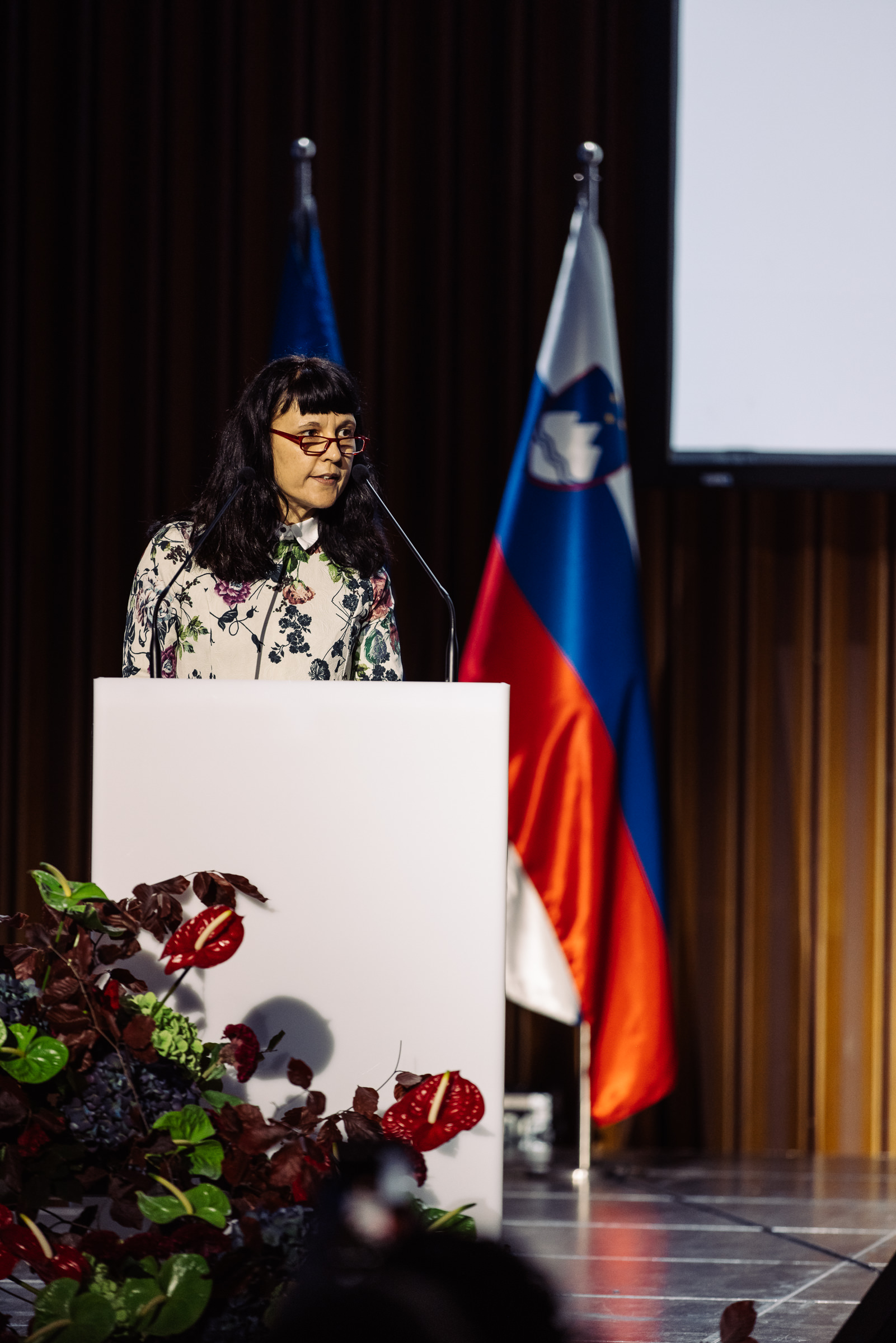
Jadranka Plut, Head of the Sector for Financial Mechanism at the Ministry of Cohesion and Regional Development, discussed the implementation of the EEA and Norway Grants 2014–2021 in Slovenia. In her address, she outlined the key achievements of the Grants during this period, noting that Slovenia had been allocated €37.7 million. She highlighted the success of the Climate Change Mitigation and Adaptation Programme, which supported the implementation of 17 projects that collectively reduced annual CO2 emissions by 5,000 tonnes. “This is an important step towards achieving the goals of the Paris Agreement,” she said while emphasizing that significant challenges remain. The Education, Scholarships, Apprenticeship, and Youth Entrepreneurship programme enabled 24 projects involving over 1,500 young people. These initiatives provided valuable skill development and fostered partnerships with organizations in Norway and Iceland, strengthening Slovenia’s competitiveness within the European Economic Area. In the area of social inclusion, more than 24 projects have been realised with the support of the Grants, directly benefiting 4,000 individuals – primarily long-term unemployed and young people – contributing to a 15% reduction in unemployment. Lastly, Plut emphasised the importance of bilateral cooperation, with over 30 joint initiatives implemented. “This collaboration has laid a strong foundation for future partnerships and the deepening of ties between countries,” she concluded.
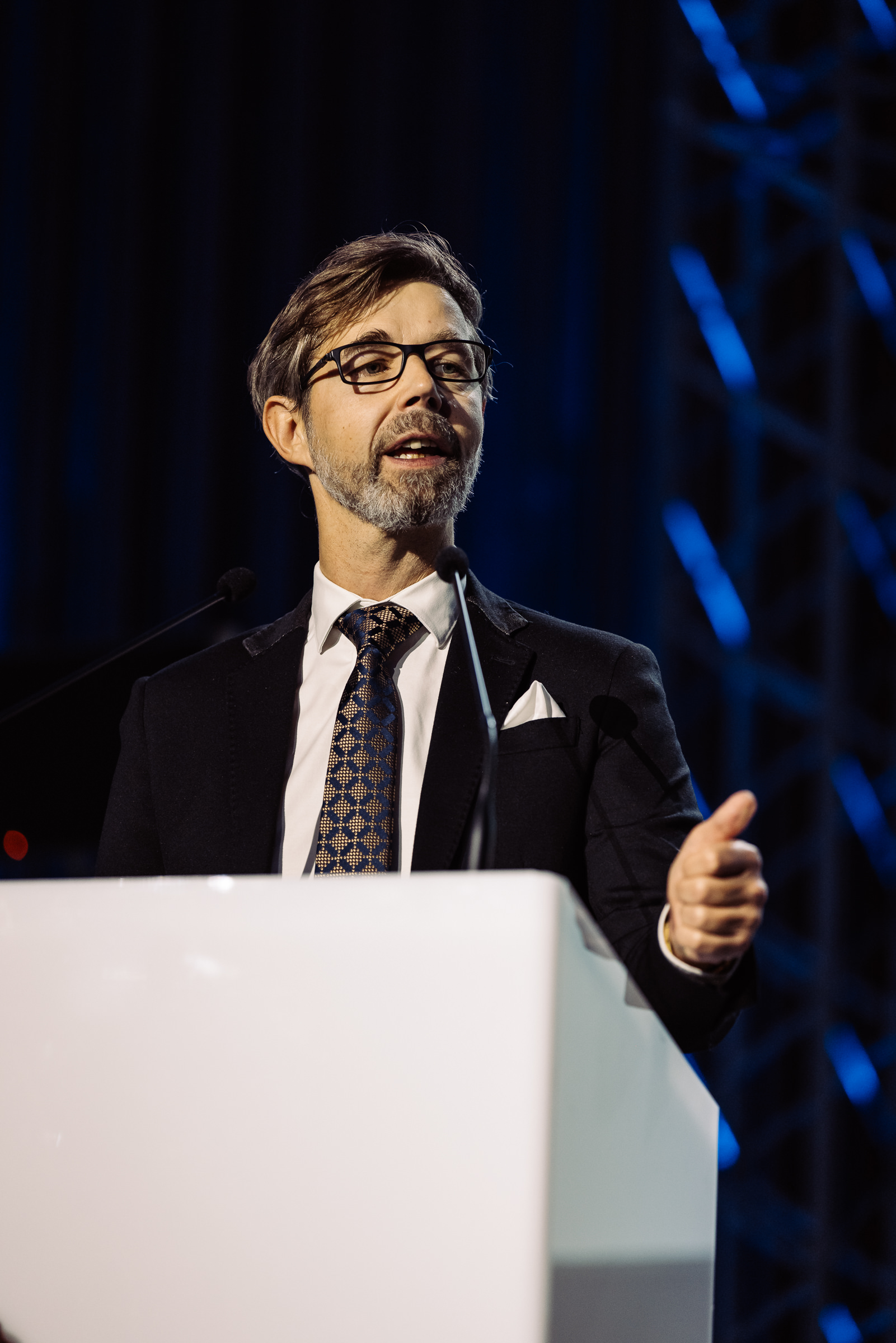
Goran Forbici, Director of the Centre for Information Service, Co-operation and Development of NGO (CNVOS), spoke about the implementation of the Active Citizens Fund, one of the programmes supported by the EEA and Norway Grants in the 2014–2021 period. In his address, he emphasized the remarkable accomplishments of the Active Citizens Fund. These included the preservation of natural habitats for species such as the Black Stork, Wild Cock, Little Flycatcher, and Cotton-footed Chuk; the protection of Anhovo from new industrial pollution; and the active participation of more than 30,000 people in various project initiatives. Forbici also highlighted other significant achievements, such as the introduction of the “only yes means yes” principle of consent, the successful fundraising campaign for the Slovenian Press Agency (STA), and the elimination of unequal voting rights for people with disabilities. He stressed that these and many other milestones have greatly contributed to improving the quality of life in Slovenia. Concluding his remarks, Forbici urged that “today’s event should mark the beginning of a new path and fresh collaborations. There is still much work ahead, and only through collective efforts can we build a better future.”
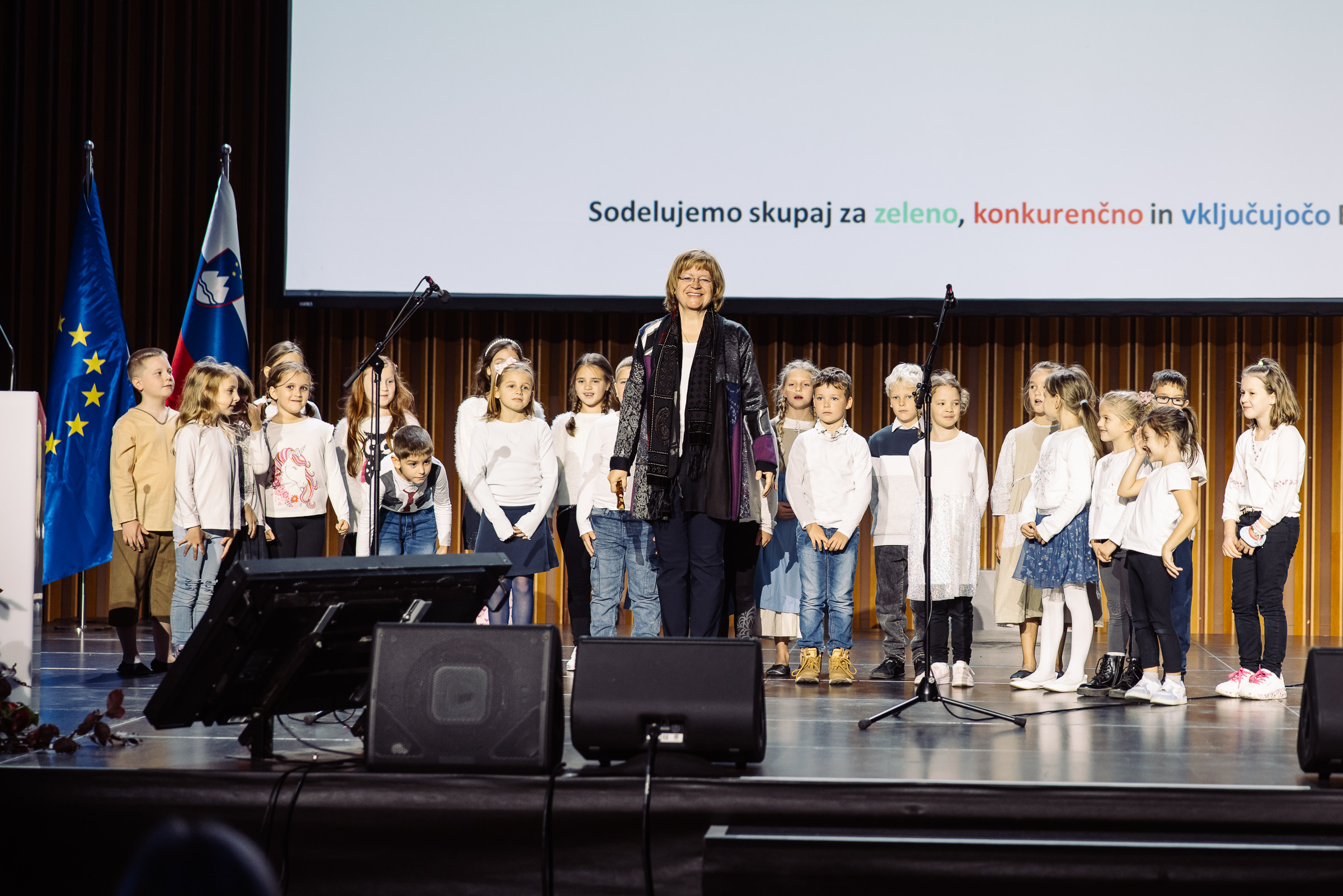
The second cultural highlight of the day was a captivating singing and folklore performance by pupils from the Elementary School Ivan Grohar from Škofja Loka, led by their teachers. Elementary School Ivan Grohar was a project partner in the Heritage School for the New Generations project, supported by the Norway Grants. The project successfully bridged the gap between primary education and cultural heritage, which has traditionally had limited representation in school curricula.
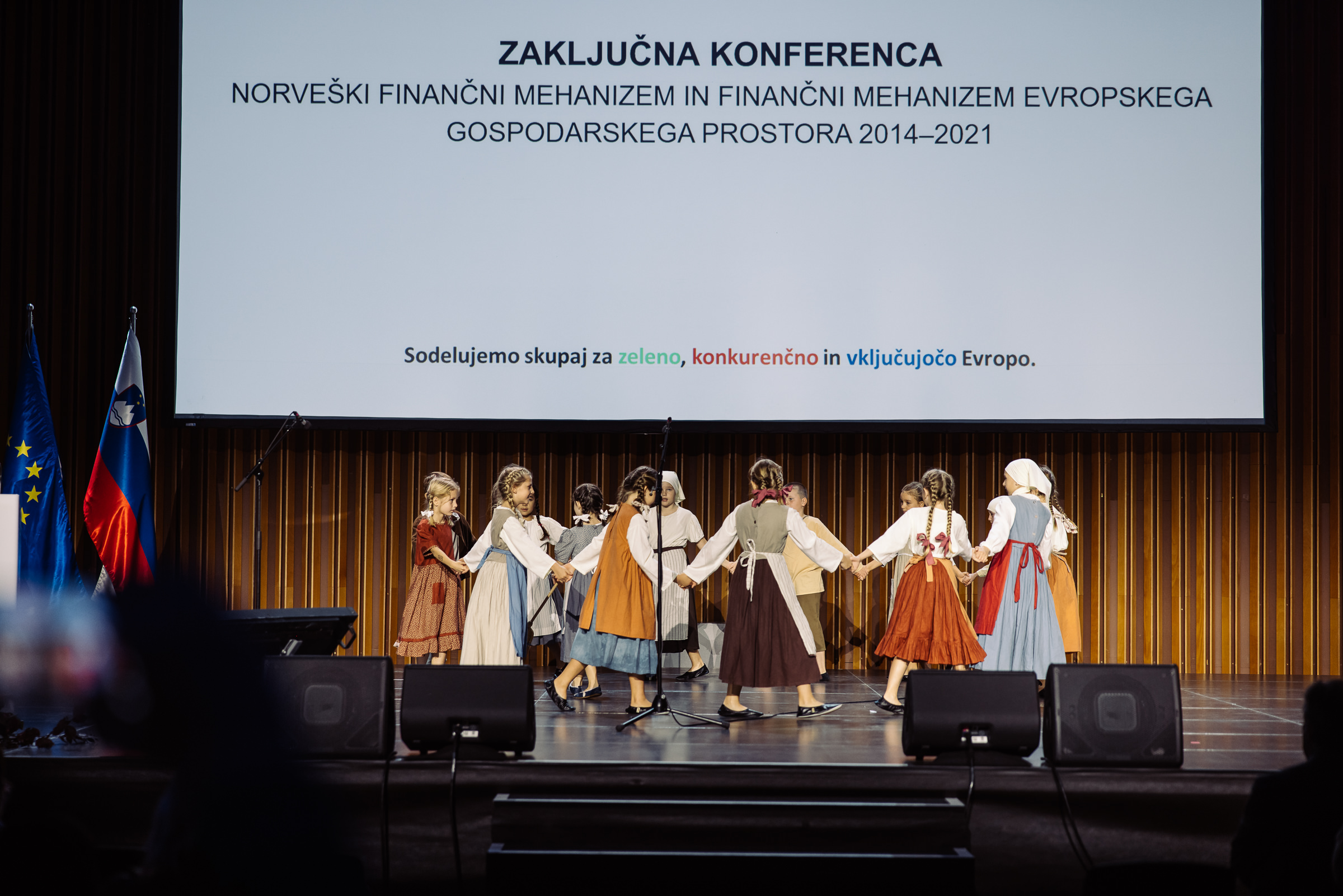
The closing conference of the EEA and Norway Grants 2014–2021 in Slovenia showcased numerous achievements and projects that have played a key role in reducing economic and social disparities, while also strengthening bilateral relations between Slovenia and the donor states. The event highlighted successful initiatives in areas such as climate change, education, and civil society, with participants emphasizing the ongoing need for collaboration.
More in-depth coverage of the project presentations will be featured in the upcoming article.